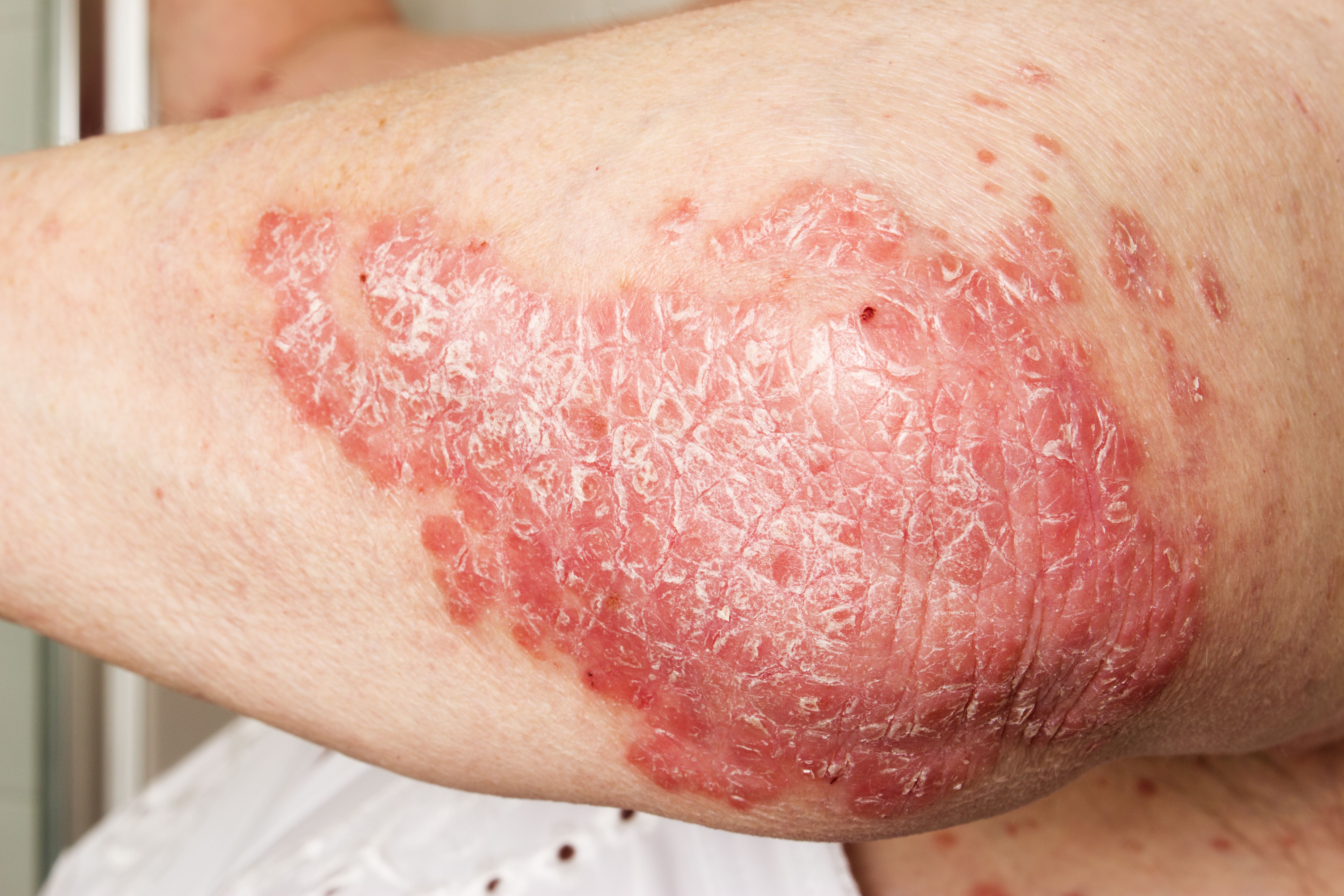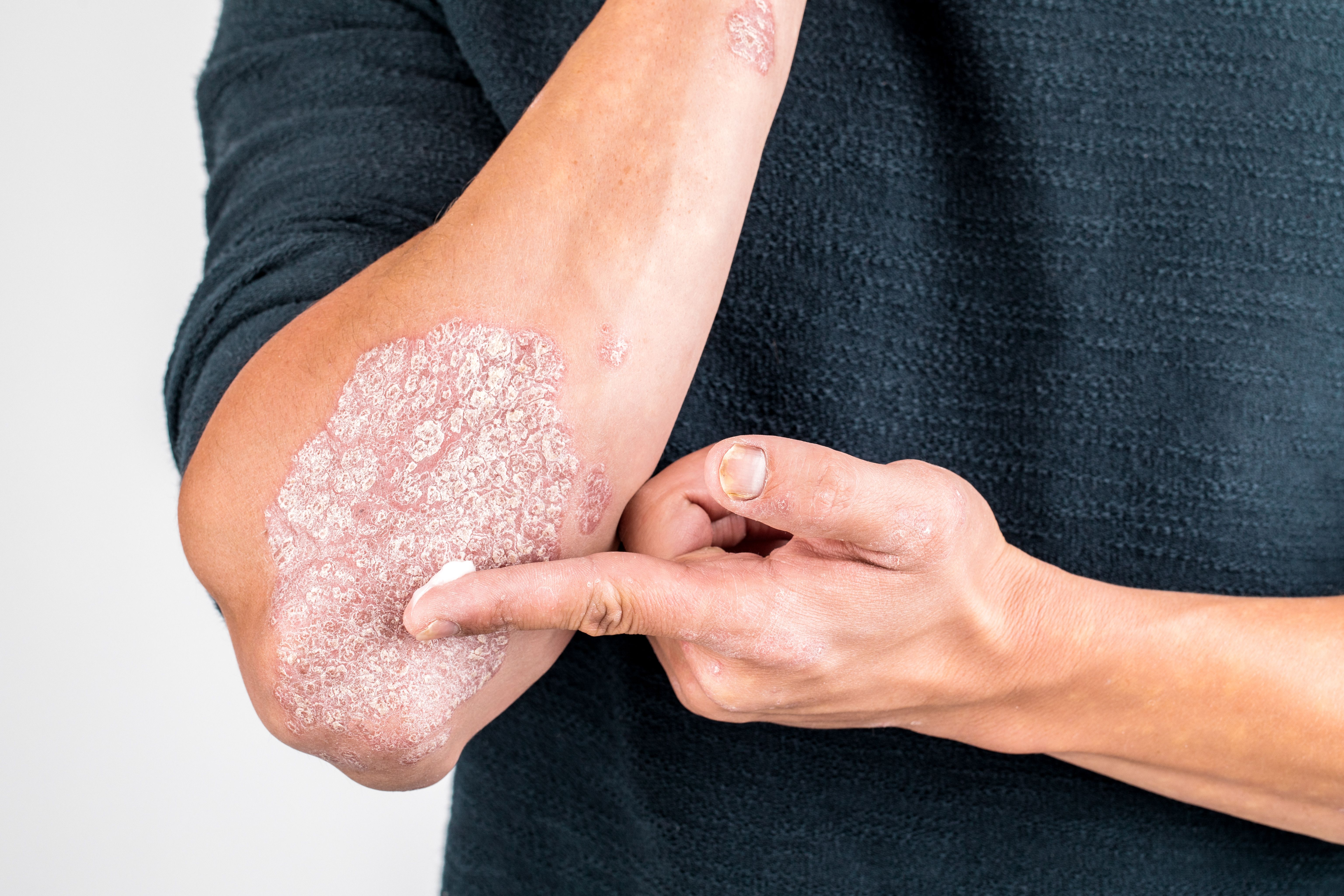- Case-Based Roundtable
- General Dermatology
- Eczema
- Chronic Hand Eczema
- Alopecia
- Aesthetics
- Vitiligo
- COVID-19
- Actinic Keratosis
- Precision Medicine and Biologics
- Rare Disease
- Wound Care
- Rosacea
- Psoriasis
- Psoriatic Arthritis
- Atopic Dermatitis
- Melasma
- NP and PA
- Skin Cancer
- Hidradenitis Suppurativa
- Drug Watch
- Pigmentary Disorders
- Acne
- Pediatric Dermatology
- Practice Management
- Prurigo Nodularis
- Buy-and-Bill
Article
Does gluten intake influence psoriasis, psoriatic arthritis?
Author(s):
A recent study examined whether gluten intake in adulthood increases the risk of developing psoriasis, psoriatic arthritis, and atopic dermatitis.
A recent study examined whether gluten intake in adulthood increases the risk of developing psoriasis, psoriatic arthritis, and atopic dermatitis. (Milan Lipowski - stock.adobe.com)

Celiac disease is an autoimmune disorder that is characterized by a deleterious reaction to the intake of gluten. Patients with celiac disease sometimes suffer from dermatitis herpetiformis. In order to control the symptoms of celiac disease it is paramount to adapt a gluten-free diet. The success of controlling the symptoms of celiac disease with a gluten-free diet has led to patient curiosity in other diseases as well. In psoriasis, many patients inquire about non-pharmacologic management of their disease and whether they should be avoiding certain foods or ingredients such as gluten.
RELATED: Mediterranean diet may reduce psoriasis severity
There is a study that demonstrated that patients with atopic dermatitis who observed a gluten-free diet reported improved symptoms. Furthermore there are several small uncontrolled studies that showed improvement in symptoms related to psoriasis with a gluten-free diet. Interestingly, epidemiological studies have shown that patients with celiac disease have an increased risk of developing psoriasis.
Dr. Aaron Drucker et al from the Division of Dermatology, at Women’s College Hospital in Toronto, Ontario published a recent study in the Journal of the American Academy of Dermatology. The study's objective was to examine whether gluten intake in adulthood increases the risk of developing psoriasis, psoriatic arthritis, and atopic dermatitis.
RELATED: Weight matters in psoriasis, psoriatic arthritis
In order to explore gluten intake’s relationship to the development of psoriasis, psoriatic arthritis and atopic dermatitis, the Nurses’ Health Study II (NHS2) database was utilized. The NHS2 is a cohort composed of 116,430 women aged 25 to 42 that complete a questionnaire biennially. In this patient cohort, respondents were asked to estimate the average intake of specific foods servings during the last year. Food data was extracted by the authors and the gluten percentage of the foods reported were calculated. Participants in the study were asked if they were diagnosed with psoriasis, psoriatic arthritis or atopic dermatitis in the follow-up.
In this cohort 1,432 incident cases of psoriasis were reported, 262 incident cases of psoriatic arthritis, and 400 incident cases of atopic dermatitis. Increased gluten intake was not associated with risk of developing psoriasis, psoriatic arthritis or atopic dermatitis. Results were further divided by quintiles of gluten intake. Still there remained no correlation between of quantity of gluten intake and the development of psoriasis, psoriatic arthritis or atopic dermatitis.
RELATED: Poor diet and psoriasis flares often intertwined
Take-home message for dermatologists:
- Based on the NHS2 there was NO association between amount of gluten consumed and incidence of psoriasis/psoriatic arthritis.
- This study did NOT support the restriction of gluten in patients with psoriasis psoriatic arthritis.
This study examined the impact of gluten intake and the development of psoriasis and psoriatic arthritis. While the results did not show any correlation between gluten intake and the development of psoriasis, it did not examine whether patients already suffering from psoriasis benefit from gluten restriction. This study has several major limitations. The NHS2 registry is only comprised of women, results were based on surveys that allow recall bias, and finally there were no patients in the study that were already observing a gluten-free diet.
References:
Drucker AM, Qureshi AA, Thompson JM, Li T, Cho E. Gluten intake and risk of psoriasis, psoriatic arthritis and atopic dermatitis among US women. J Am Acad Dermatol. 2019;






